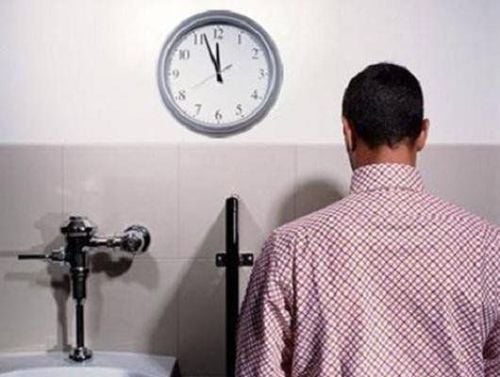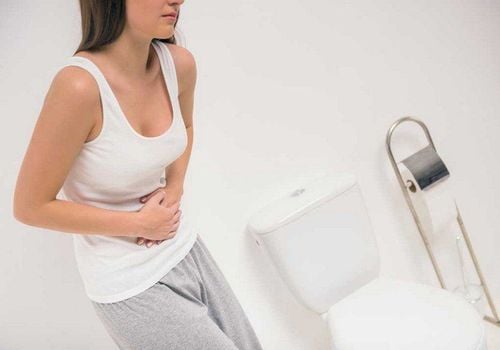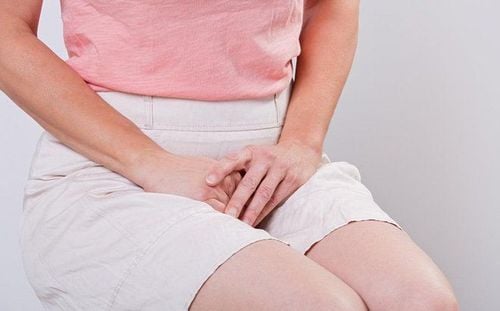This is an automatically translated article.
The article was professionally consulted by Specialist Doctor I Nguyen Hung - Department of Medical Examination & Internal Medicine - Vinmec Danang International Hospital. With over 36 years of experience in the profession, the doctor has experience in treating endocrine - diabetes and kidney diseases.Nocturia in young people, especially women, is a very common manifestation of urinary tract disorders due to the influence of hormones or diseases. Knowing the causes and effects of nocturia will help patients control and treat it completely before it leads to dangerous complications.
1. What is nocturia? What are the symptoms associated with nocturia?
Nocturia is the condition of urinating more than 1 time during sleep at night, up to 5-7 times. In addition to the frequency of urination, the patient may also have unusual symptoms depending on the pathological cause such as:Painful urination, burning urine, burning urethra Frequent urge to urinate and bladder fullness but when urinating very little amount of water, not urinating or in severe symptoms can urinate pus and blood. Nocturia is very common in the elderly, possibly due to disease or other reasons. On the one hand, in the elderly, when physiological functions have declined and organs have aged, diseases will directly or indirectly lead to nocturia. On the other hand, elderly people often have short sleep, less sleep is more likely to cause urination, and vice versa, frequent urination makes them lose sleep forming a loop that causes their health to decline.
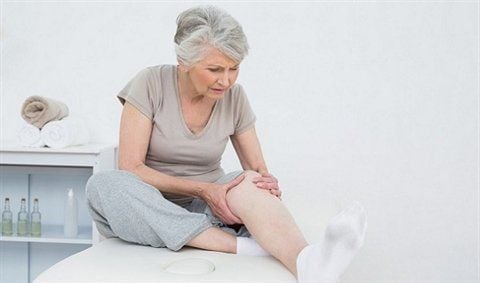
2. Causes of nocturia
There are many causes of nocturia in women, including the following main causes:Overactive bladder (OAB): A condition in which nocturia occurs due to weakening of the pelvic floor muscles after pregnancy and changes in bladder function. hormones in menopause or a woman who is too stressed, stressed, lack of sleep. Bladder irritation or overactivity easily causes frequent urination both during the day and at night Urinary tract infections: The anatomical structure of the ureters in women is usually quite short, so bacteria can easily enter from the outside. This route is through sexual activity or poor hygiene. It is this will lead to a urinary tract infection with symptoms of frequent urination, nocturia with burning pain and sometimes hematuria, pus, and foul odor Interstitial cystitis: This is a medical condition that the patient feels. Bladder pain and immediate need to urinate, but after urinating, the symptoms are immediately relieved Vaginal infection: In addition to the symptoms of urination, many patients may also have painful urination with vaginal itching, vaginal odor and discharge. Uterine prolapse: A disease in women giving birth many times in a row, causing the prolapsed uterus to compress the bladder easily leading to nocturia. Kidney stones or foreign bodies in the urinary tract are also the cause of bladder irritation. Frequent urination during the night, sometimes accompanied by hematuria Using diuretics to treat blood pressure is also easy to cause patients to urinate more at night Pregnant women are also susceptible to nocturia due to the growing fetus. Pressure on the bladder causes irritation.
3. How does nocturia affect women?
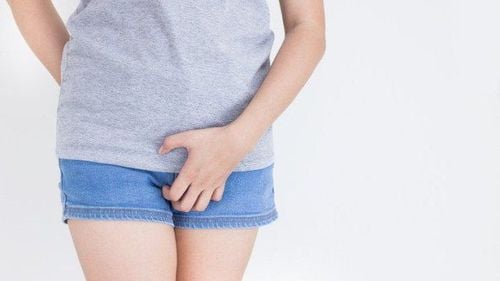
Besides, nocturia is also the cause of an increased risk of blood pressure, heart disease and an increased rate of stroke in the elderly due to having to wake up many times at night. The sleep of the elderly is often quite short, the lack of sleep because of nocturia will unintentionally form a pathological spiral that makes the patient's health clearly decline.
4. Remedies for nocturia in women
In order to overcome the problem of nocturia in women, finding the main cause of this expression is very important and plays a decisive role in treatment. Therefore, when having symptoms of nocturia, the patient should immediately seek medical attention to help find the cause and treat it properly.Measures to help limit nocturia without medication that patients can refer to include:
Limiting the use of foods or drinks that irritate the bladder such as tea, coffee, carbonated drinks , alcohol, hot sweet or spicy food, especially before going to bed Build a healthy life and less worry, stress and stress For post-pregnancy women, Kegel exercises can help strengthen the pelvic muscles: the patient tightens the muscles to stop urinating, holds the movement for 5-10 seconds, then relaxes for 10 seconds and repeats about 10 times. Patients should maintain this exercise regularly (about 3 times / day) to control bladder function Nocturia can be a symptom of a disease or simply the body's response to changes in the body. inside and outside. Therefore, patients need to go to medical facilities right from the first symptoms to find out the cause and stop this symptom early, maintain their health and life.
Please dial HOTLINE for more information or register for an appointment HERE. Download MyVinmec app to make appointments faster and to manage your bookings easily.





